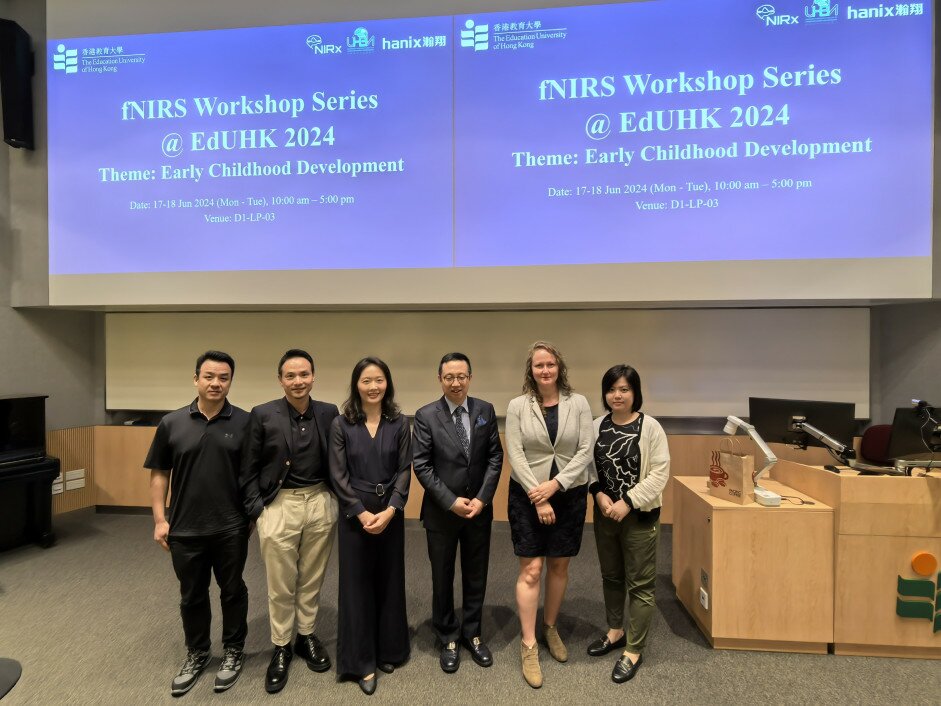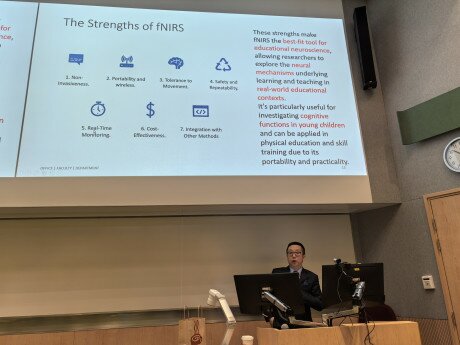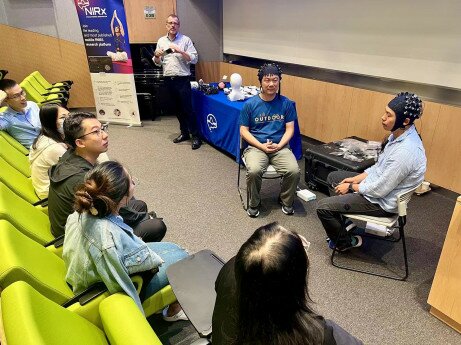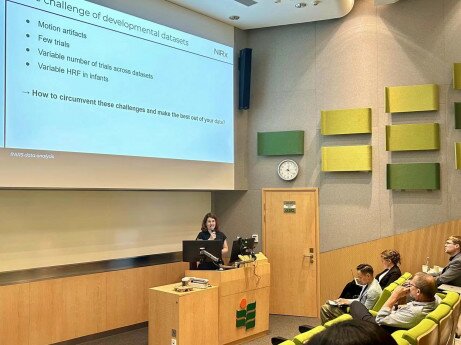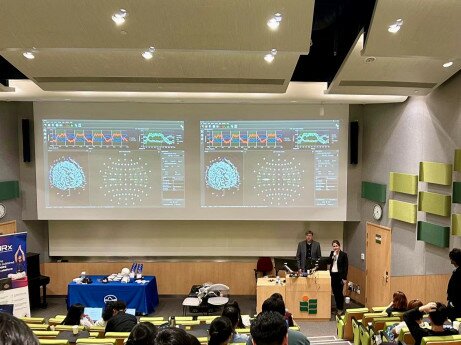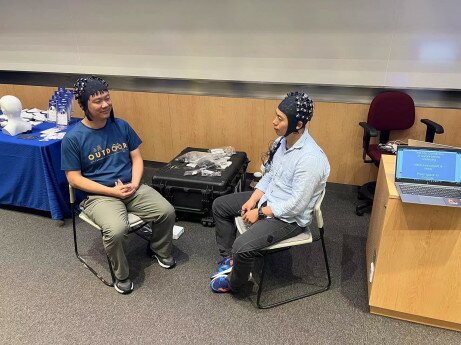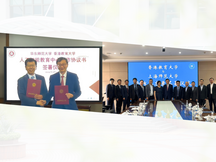EdUHK Holds First fNIRS Workshop Series
The University Research Facility of Human Behavioural Neuroscience (UHBN) at The Education University of Hong Kong (EdUHK) held the inaugural ‘EdUHK fNIRS Workshop Series’ on 17th and 18th June, with ‘Early Childhood Development’ as the theme. The event gathered renowned experts in the field of functional near-infrared spectroscopy (fNIRS) research and technology, as well as around 180 scholars and graduate students from various higher education institutions in Hong Kong.
The workshop featured a series of lectures, practical sessions, and panel discussions designed to provide participants with a comprehensive understanding of the latest advancements in fNIRS technology and its application in early childhood research. Attendees had the opportunity to learn from leading researchers and practitioners, exchange ideas, and explore opportunities for potential collaboration.
In his opening speech, Vice President (Research and Development), Professor Chetwyn Chan Che-hin highlighted the advantages of fNIRS technology and its contribution to educational research. Professor Ken Yung Kin-lam, Director of UHBN and Chair Professor of Biology and Neuroscience, and Dr Hou Wai-kai, Associate Director and Associate Professor of the Department of Psychology, hosted a delegation of experts from Germany for in-depth exchanges.
A keynote speech was given by Professor Philip Li Hui, Chairman of the curriculum development committee of the Master of Science in Educational Neuroscience and Chair Professor of the Department of Early Childhood Education. He analysed and compared three statistical modelling methods for haemodynamic changes in the prefrontal cortex. The modelling thus proved a polynomial quadratic equation is the best model for fitting changes in frontal cortex oxygenation during cognitive transitions, significantly outperforming traditional linear regression GLM analysis. His team’s significant breakthroughs in statistical analysis methods for near-infrared data were highly praised by the German experts. The thesis on the topic has already been published in international journals.
Dr Xie Sha, Assistant Professor at the ECE Department, Faculty of Education, Shenzhen University, provided insights into mindfulness and children's brain activity using fNIRS. Dr Wu Dandan, Assistant Professor in the Department of Early Childhood Education at EdUHK, provided a comprehensive analysis of research findings on the impact of digital experiences on young children's brains using near-infrared technology. Dr Cécile Issard and Dr Mahipal Choudhary, research consultants at Medical Technologies Ltd, LLC, shared best practices for conducting fNIRS developmental research. Dr Michael Lührs, a postdoctoral researcher at Maastricht University, introduced data analysis techniques for fNIRS developmental datasets.
As well as lectures and panel discussions, the workshop included live demonstrations and practical exercises of the latest fNIRS equipment, allowing participants to gain hands-on experience in research design, data collection and analysis, and interventions. The event underscores the University's remarkable achievements in infant and young child near-infrared brain imaging and educational neuroscience research, providing valuable experience and support for young scholars from other institutions in Hong Kong.




